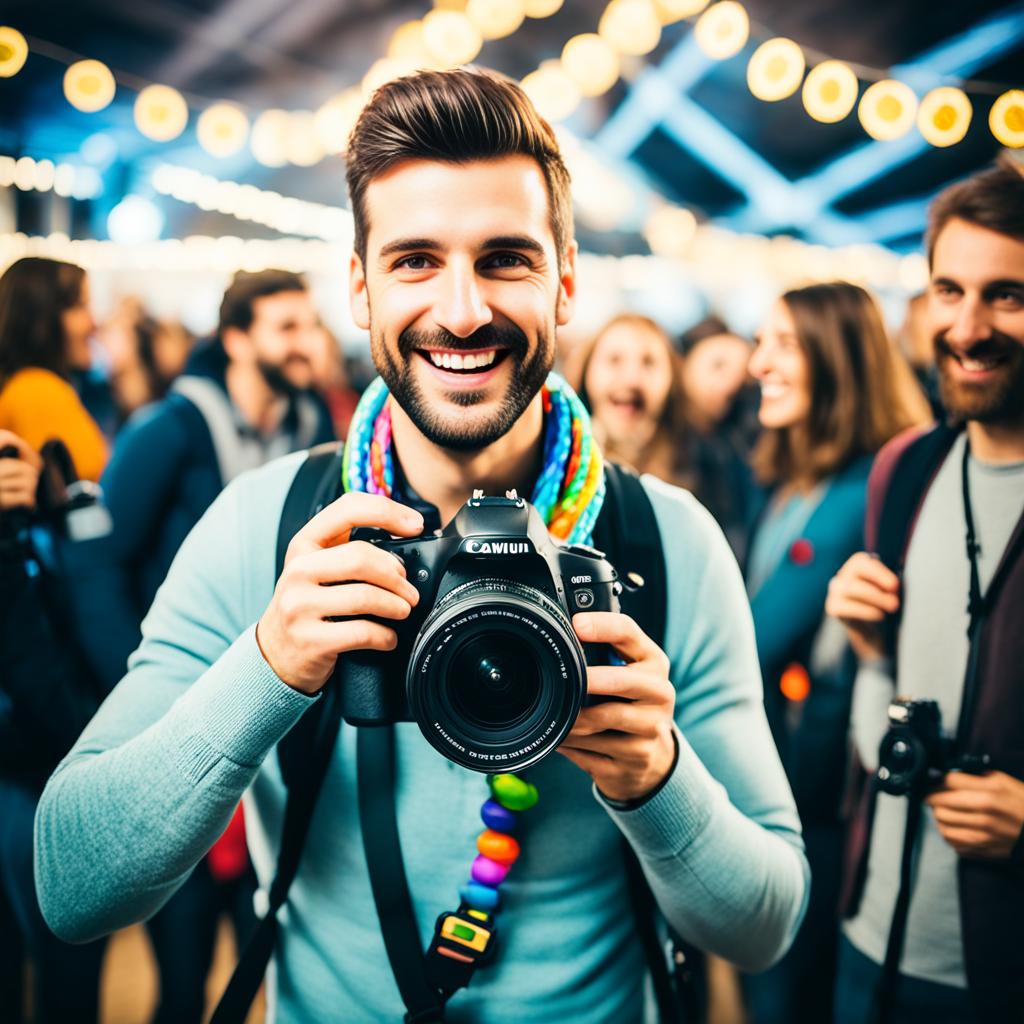Becoming a part-time event photographer can be an exciting and fulfilling career choice for photographers looking to expand their services and showcase their talents. Whether you have a passion for capturing beautiful moments at weddings, corporate events, or conferences, this comprehensive guide will provide you with the necessary steps to launch a successful career as a part-time event photographer.
Are you interested in exploring part-time photography jobs that allow you to unleash your creativity and provide a valuable service to clients? With the rising demand for professional event photography, skilled part-time photographers are in high demand. Whether you have previous experience or just starting out, this guide will help you navigate the path to becoming a part-time event photographer.
Throughout this guide, we will cover essential topics such as:
- What it takes to become an event photographer
- How to start your journey as an event photographer
- Effectively marketing yourself as an event photographer
- Developing the necessary skills to excel in event photography
- Setting your pricing as a part-time event photographer
- Investing in the right equipment for event photography
- Delivering high-quality photos to your clients and more!
So, if you have ever thought about turning your passion for photography into a rewarding part-time career, keep reading to embark on the exciting journey of becoming a part-time event photographer.
Key Takeaways:
- Part-time event photography offers an exciting career option for photographers looking to expand their skills and services.
- Developing a passion for capturing beautiful moments and telling stories through photographs is crucial for success as an event photographer.
- Starting your career as a part-time event photographer can be done through freelance work or finding an in-house position.
- Effectively marketing yourself through online platforms, social media, and a professional website is essential for attracting clients.
- As an event photographer, developing skills in directing people and capturing key moments is crucial for creating impactful photos.
What Does It Take to Become an Event Photographer?
Event photography encompasses a diverse range of professional photography services, including capturing beautiful moments at weddings, corporate events, conferences, and more. As an event photographer, it is crucial to possess a specific skill set and the ability to adapt to various types of events. Furthermore, having a passion for capturing these significant moments and telling a compelling story through your photographs is indispensable.
When it comes to event photography, the key is to have an eye for detail and a knack for anticipating those fleeting moments that truly capture the essence of an event. Whether it’s the joyous exchange of vows at a wedding, the bustling energy of a conference, or the sophisticated ambiance of a corporate gathering, event photographers have the responsibility of immortalizing these priceless memories.
To excel in the field of event photography, one must be proficient in technical aspects like composition, lighting, and post-processing techniques. Additionally, interpersonal skills are paramount to ensure effective communication with clients, event organizers, and attendees, allowing for a seamless and enjoyable photography experience for all parties involved.
In summary, becoming an event photographer requires a combination of technical expertise, artistic vision, and effective communication skills. By honing these core competencies and continuously refining your craft, you can provide exceptional event photography services and create lasting memories for your clients.
Quote:
“Event photography allows me to capture the essence of memorable moments and tell compelling stories through my photographs. It’s a privilege to be a part of someone’s special day or contribute to the success of a corporate event.”
Event Photography Skills:
- Technical proficiency in photography equipment and techniques
- Strong composition and framing skills
- Understanding of lighting and how to adapt to different environments
- Ability to anticipate and capture key moments
- Excellent communication and interpersonal skills
- Attention to detail and a keen eye for capturing emotions
- Strong post-processing skills using software like Adobe Photoshop
Famous Event Photographers:
| Name | Specialization |
|---|---|
| Kevin Mullins | Wedding Photography |
| David Goldman | Editorial and Documentary Photography |
| Yoon S. Byun | Photojournalism and Documentary Photography |
How to Start Being an Event Photographer?
When starting out as an event photographer, you have two main options: freelance work or finding an in-house position. Each path has its own advantages, so let’s explore both options.
Freelance Event Photographer
Freelancing as an event photographer allows you to have more control over your schedule and the types of events you cover. It’s an excellent way to gain experience, build a diverse portfolio, and establish your brand in the industry. Whether you specialize in weddings, corporate events, or concerts, freelancing lets you choose the events that align with your interests and style.
By working as a freelance event photographer, you can also forge connections with clients and other professionals in the industry. Networking is crucial, so make sure to attend industry events, join photography communities, and build relationships with event planners and vendors.
One of the essential aspects of freelancing is creating a strong event photography portfolio to showcase your skills and attract clients. Your portfolio should include a variety of events you have photographed, demonstrating your ability to capture different moments and atmospheres. Online platforms such as your website or social media profiles are great places to display your portfolio.
In-House Event Photographer
If you prefer stability and steady income, working as an in-house event photographer might be the right choice for you. Many companies, event venues, and event planning agencies hire in-house photographers to cover their events consistently. This option provides a reliable source of income and may offer additional benefits such as healthcare and retirement plans.
As an in-house event photographer, you will become familiar with the company’s style and have the opportunity to cultivate long-term relationships with clients. While you may have less control over your schedule and the types of events you photograph, you’ll gain a deeper understanding of their vision and be able to deliver consistent results.
“I’ve had great success as both a freelance event photographer and as an in-house photographer. Freelancing allowed me to explore different types of events and build a diverse portfolio, while working in-house gave me the stability and benefits I desired. Whichever path you choose, make sure to showcase your best work and continuously improve your skills to remain competitive in the industry.” – Emily Johnson, Professional Event Photographer
Image related to the section: Freelance and In-house Event Photographer
Advertise Yourself as an Event Photographer
As an event photographer, it’s essential to market your photography services effectively to attract clients. By utilizing online advertising platforms and creating a professional event photography website, you can showcase your work and provide a point of contact for potential clients.
Utilizing online advertising platforms allows you to reach a larger audience and increase your visibility in the industry. Platforms such as Google Ads, Facebook Ads, and Instagram Ads allow you to target specific demographics and geographical locations, ensuring that your advertisements are seen by the right people.
To maximize the impact of your online advertising efforts, create compelling ad copy and visually appealing images that highlight your unique style and expertise as an event photographer. Consider including a call-to-action in your ads, inviting potential clients to visit your website or contact you for more information.
Speaking of websites, having a dedicated event photography website is crucial for establishing your online presence and showcasing your portfolio. This website should feature a user-friendly layout, high-quality images, and information about the services you offer. Include a clear and easily accessible contact form or email address for interested clients to reach out to you directly.
Don’t underestimate the power of social media in promoting your event photography services. Create business accounts on platforms such as Instagram, Facebook, and LinkedIn, and regularly post your best event photos to engage with your audience. Encourage satisfied clients to leave reviews and testimonials on your social media pages to build credibility and attract potential clients.
Additionally, take advantage of word-of-mouth referrals by providing exceptional service to your clients. When clients are satisfied with your work, they are more likely to recommend you to others, expanding your client base organically.
Remember, effective advertising and online presence are key to marketing your photography services as an event photographer. Utilize online advertising platforms, create a professional event photography website, engage on social media, and provide exceptional service to your clients to attract more opportunities and grow your business.
Testimonials from Satisfied Clients:
- “Working with [Your Name] as our event photographer was a fantastic experience. Their attention to detail and ability to capture the essence of the event truly impressed us.” – [Client Name], Event Coordinator
- “I highly recommend [Your Name] for any event photography needs. Their professionalism and creativity brought our event to life in stunning photographs.” – [Client Name], Wedding Planner
- “[Your Name] is an incredibly talented and reliable event photographer. They went above and beyond to capture the special moments of our conference, and we couldn’t be happier with the results.” – [Client Name], Conference Organizer
Practice Directing People as an Event Photographer
As an event photographer, I understand the importance of capturing the best moments. To do this, I rely not only on my event photography skills but also on my ability to direct people effectively. Directing subjects allows me to compose compelling shots, capture authentic emotions, and tell a cohesive story through my photographs.
Working with different subjects requires adaptability and interpersonal skills. Whether it’s posing a couple for a wedding photo or coordinating a group shot at a corporate event, directing people is a crucial aspect of event photography. By confidently guiding individuals and groups, I can ensure that each shot is visually appealing and captures the essence of the moment.
Managing difficult situations can also be a part of directing people as an event photographer. Events can be fast-paced and unpredictable, presenting challenges such as low lighting or crowded spaces. In these instances, I draw on my experience and technical expertise to navigate the situation while directing subjects for the best possible outcome. Being calm, assertive, and maintaining open lines of communication are essential skills that help me overcome obstacles and capture exceptional photographs.
Paying attention to the flow of the event is crucial for documenting the key moments. I constantly observe and anticipate the action, ready to capture those significant instances that define the event. By being attentive and proactive, I can immortalize these fleeting moments and create photographs that leave a lasting impact.
To illustrate the importance of directing people in event photography, take a look at the image below:
“Directing subjects effectively is the key to capturing the best moments in event photography. It allows me to create visually stunning and emotionally engaging photographs that tell a story.”
In summary, honing my skills in directing people as an event photographer has been instrumental in my ability to capture the best moments. By practicing with different subjects, managing difficult situations, and paying attention to the flow of the event, I can document the essence and emotions of each occasion. Through effective direction, I can ensure that my photographs are impactful and memorable.
Set Your Price as an Event Photographer
When it comes to pricing your event photography services, finding the right balance can be a challenge. It’s important to consider several factors to ensure you’re offering competitive rates while still matching the value you provide as a professional photographer.
1. Type and Size of the Event: The nature and scale of the event should directly influence your pricing. A large wedding or corporate conference will likely require more time and resources compared to a smaller private party, and therefore, may warrant a higher rate.
2. Location: The location of the event can impact your pricing. Higher-cost areas with a greater demand for photographers may command higher rates, while events in smaller towns or rural areas may have more competitive pricing. Research local market rates to get a sense of the average pricing in your area.
3. Level of Experience: Your experience and expertise as an event photographer play a crucial role in determining your rates. While novice photographers may charge lower rates to build their portfolio, seasoned professionals with a strong track record can justify higher prices based on their skillset and reputation.
4. Research Comparable Rates: Take the time to research what other photographers in your area are charging for event photography services. This will give you a benchmark to ensure your rates are competitive and reflect the value you provide.
5. Matching Price with Value: It’s important to strike a balance between pricing your services competitively and acknowledging the value you bring as a skilled professional photographer. Consider the unique aspects of your service, such as your style, creativity, and ability to capture precious moments, and factor that into your pricing.
Ultimately, setting your event photographer rates requires careful consideration of the specific event, your level of expertise, and the value you bring to your clients. By taking these factors into account, you can ensure that your pricing is both competitive and reflective of the quality of your work.
Sample Event Photography Pricing Package
As a reference, here is a sample event photography pricing package that can be customized based on your specific offerings and market:
| Package | Description | Price |
|---|---|---|
| Basic Package | Includes 4 hours of event coverage | $500 |
| Standard Package | Includes 6 hours of event coverage, digital photo gallery, and basic photo editing | $800 |
| Premium Package | Includes 8 hours of event coverage, digital photo gallery, advanced photo editing, and a custom-designed photo album | $1,200 |
Note: The prices mentioned in the table above are for illustrative purposes only and should be adjusted based on your market rates and the specific services you offer.
Equipment for Event Photography
When it comes to event photography, having the right equipment is crucial for capturing high-quality images. As an event photographer, I understand the importance of investing in reliable tools that can handle the demands of various shooting situations. Here are some essential pieces of equipment that every event photographer should consider:
Camera Bodies
Having a good quality camera body is the foundation of event photography. It’s essential to choose a camera with advanced features, excellent low-light performance, and fast autofocus capabilities. One popular option among event photographers is the Canon EOS 5D Mark IV or the Nikon D850, both known for their exceptional image quality and versatility.
Camera Lenses
Investing in versatile lenses is key to capturing a wide range of shots during events. Two must-have lenses for event photography are the 24-70mm and 70-200mm. The 24-70mm lens is perfect for capturing group shots and wide-angle views of the venue, while the 70-200mm lens allows you to zoom in on subjects and capture intimate moments from a distance.
Memory Cards
Running out of storage space during a crucial moment can be a nightmare for any event photographer. That’s why it’s crucial to invest in high-capacity memory cards with fast write speeds. I recommend using SanDisk Extreme Pro or Lexar Professional memory cards, which offer ample storage and reliable performance.
Camera Flash
Events often have challenging lighting conditions, especially in dimly lit venues or during evening receptions. A camera flash becomes an essential tool in these situations. Consider the Canon Speedlite 600EX II-RT or the Nikon SB-5000, which offer powerful output, versatile control, and consistent performance.
Investing in high-quality camera bodies, lenses, memory cards, and a camera flash will ensure that you are well-equipped to capture stunning images during events. With the right equipment in hand, you’ll have the confidence to capture every precious moment and deliver exceptional results to your clients.
What Should Your Focus be When Photographing an Event?
When photographing an event, it is important to have a clear focus on capturing key moments, emotions, and telling a compelling story through your photos. By doing so, you can create a visual narrative that not only captures the essence of the event but also engages viewers and evokes the emotions experienced during that moment.
To effectively showcase the event and its atmosphere, make sure to capture a variety of subjects. Photograph the venue itself to provide a sense of place and setting. Focus on VIP guests, speakers, and key participants to highlight the significance and importance of their presence. Direct your lens towards the audience, capturing their reactions, expressions, and interactions to convey the energy and engagement of the event.
Being creative and innovative with your shots will help you stand out as an event photographer. Look for unique angles, perspectives, and compositions that bring a fresh and captivating approach to storytelling. Emphasize the mood and vibe of the event through your visual choices, taking into account lighting, color, and composition to enhance the overall impact of your images.
Remember, event photography is not just about documenting what happened but also about capturing the emotions and essence of the occasion. Each photo should contribute to the larger story of the event, creating a cohesive narrative that captures the experience for those who were present and intrigues those who were not.
By focusing on key moments, capturing emotions, and telling a compelling story through your photos, you can elevate your event photography to new heights. This approach will not only satisfy your clients but also leave a lasting impression on all who view your work.
How to Select the Images to Give to Your Client
When it comes to delivering high-quality event photos to your client, selecting the right images is key. You want to choose photos that not only represent the event accurately but also evoke the desired emotions. Here are some tips to help you with the selection process:
- Focus on quality: Prioritize the best photos that showcase your skills and capture the essence of the event. Avoid giving multiple photos of the same subject to prevent diluting the impact of your work.
- Choose unique shots: Look for images that stand out from the rest and tell a story. Select photos that have a strong composition, interesting angles, or capture memorable moments. These shots will leave a lasting impression on your client.
- Consider client preferences: Take into account any specific preferences your client may have regarding editing style, color scheme, or other aesthetic elements. Adjust the images accordingly to meet their expectations and create a personalized experience.
Basic adjustments:
Before delivering the photos, make basic adjustments to enhance their overall quality. This may include adjusting the exposure, color correction, or applying minor retouching if necessary. Strive for a cohesive and professional look across all the images.
“The key to selecting the right photos for your client is to understand their vision and meet their expectations. By delivering high-quality images that resonate with them, you establish yourself as a trusted and reliable event photographer.”
By following these guidelines, you can ensure that you are selecting the best event photos for your client, catering to their preferences and delivering exceptional work that exceeds their expectations.
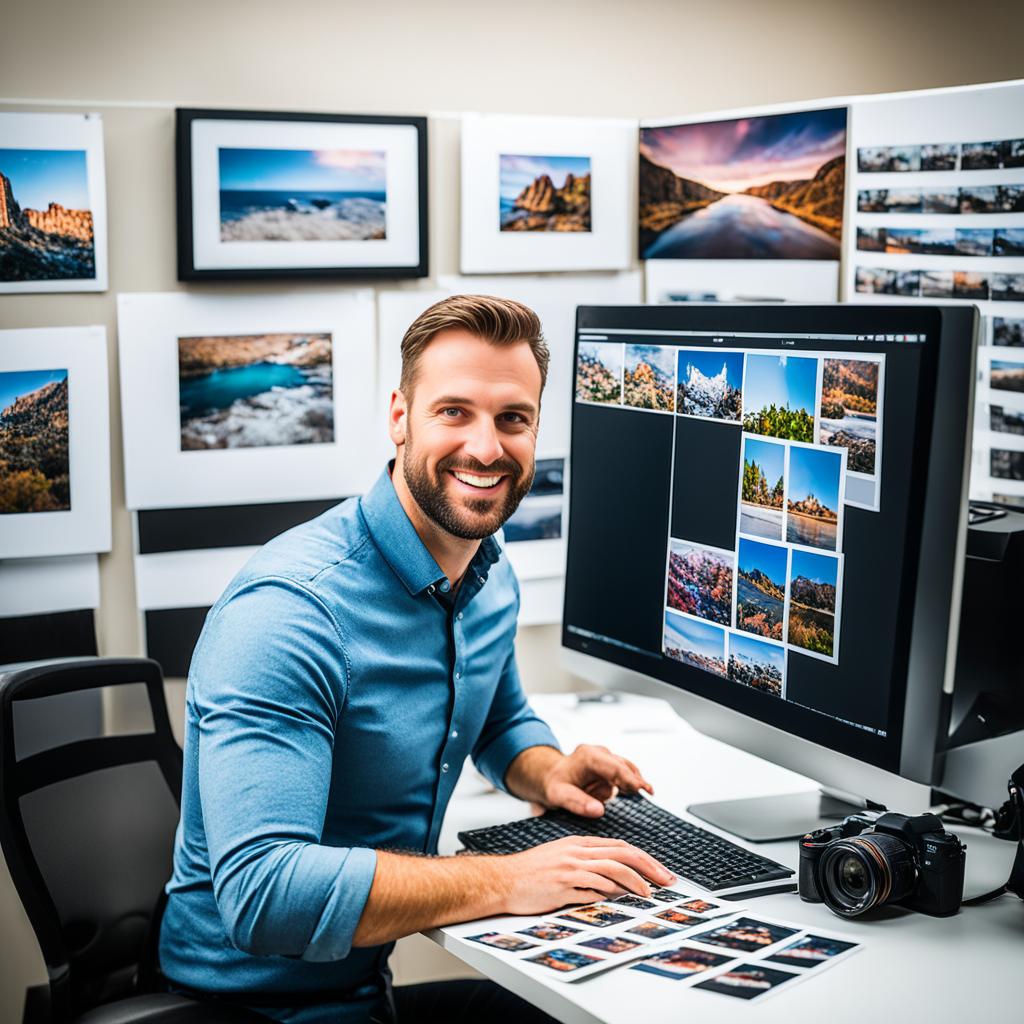
Events Photographer Career Paths
As an events photographer, the skills and experience you gain can open up various career paths for you to explore. Whether you want to continue in the photography field or transition into related roles, there are several options to consider. Let’s take a look at some potential career paths:
1. Freelance Photographer
Many events photographers choose to become freelancers, offering their services on a project basis. As a freelance photographer, you have the freedom to work with different clients and take on a variety of photography assignments. This career path allows you to have more control over your schedule and the types of events you photograph.
2. Marketing Manager
With your skills in capturing compelling visuals, you can also pursue a career as a marketing manager. Your understanding of photography can help you create engaging marketing materials, including brochures, social media posts, and website content. This role allows you to combine your creative photography skills with strategic marketing initiatives.
3. Graphic Designer
If you have a keen eye for design and a passion for visual storytelling, becoming a graphic designer might be a natural transition for you. Your experience as an events photographer can give you a unique perspective when creating graphics and visuals for various projects, such as advertisements, branding materials, and website designs.
4. Starting Your Own Business
If you dream of being your own boss and running your own photography business, starting your own company is an exciting option. By leveraging your events photography expertise, you can offer a range of services, including event photography, portrait sessions, and commercial assignments. This path allows you to have full creative control and the opportunity to build your brand.
Explore the different career paths available and consider which aligns best with your interests, skills, and long-term goals. Each path offers its own unique opportunities and challenges, so take the time to evaluate what you value most in a career.
“The best career path is the one that aligns with your passion and allows you to showcase your unique skills.”
Explore Events Photographer Education Requirements
When it comes to pursuing a career as an events photographer, the educational requirements can vary. While a majority of events photographers have at least a bachelor’s degree, it is possible to enter the industry with a high school diploma or GED. Higher education levels, such as a master’s degree, can also be beneficial for career advancement.
Having a bachelor’s degree in photography or a related field can provide you with a solid foundation in the technical and artistic aspects of photography. It can also demonstrate your commitment to the craft and your willingness to invest in your education. Some popular bachelor’s degrees for aspiring events photographers include:
- Bachelor of Fine Arts in Photography
- Bachelor of Arts in Visual Arts with a concentration in Photography
- Bachelor of Science in Photography
While a bachelor’s degree is not mandatory, it can give you an edge in a competitive field and open up additional opportunities for specialization or leadership roles in the future. However, if you don’t have a bachelor’s degree, don’t let that discourage you. Many successful events photographers have built thriving careers by gaining practical experience, honing their skills, and continuously learning through workshops, mentorship programs, and online courses.
Remember: What truly matters is not just the formal education you receive, but also the practical skills you acquire and the quality of your work. Prospective clients and employers often evaluate your portfolio and the actual photographs you produce, rather than your academic qualifications alone.
If you are considering pursuing higher education to enhance your events photography skills, you can explore master’s degree programs in photography or related fields. These programs often provide advanced training and opportunities for specialization in areas such as documentary photography, fashion photography, or photojournalism. They can also help you establish connections in the industry and gain access to resources and facilities that support your artistic development.
Importantly, keep in mind that the most valuable education for events photographers often comes from real-world experience. Actively seeking out opportunities to work on projects, assisting experienced professionals, or undergoing specialized training and internships can significantly contribute to your growth as a photographer. The combination of education and hands-on experience can shape your unique voice, build your network, and ultimately propel your career forward.
Quote: “Education is not the filling of a pot but the lighting of a fire.” – William Butler Yeats
Develop Specific Events Photographer Skills
As an events photographer, honing specific skills is essential for delivering high-quality services to your clients. There are three key areas that you should focus on: customer service, DSLR camera proficiency, and Adobe Photoshop knowledge.
- Customer Service: Providing exceptional customer service is crucial in the events photography industry. Building positive relationships with your clients will not only help you understand their needs and preferences but also establish trust and loyalty. Communication skills, responsiveness, and the ability to work well under pressure are vital aspects of delivering outstanding customer service.
- DSLR Camera Proficiency: Mastering the technical aspects of using a DSLR camera is fundamental to capturing stunning event photographs. Familiarize yourself with different camera settings, such as aperture, shutter speed, and ISO, to achieve the desired effects in various lighting conditions. Practice using different lenses and experimenting with composition to enhance your skills as a photographer.
- Adobe Photoshop: Being proficient in Adobe Photoshop allows you to take your event photographs to the next level. Learn the basics of photo editing, such as adjusting exposure, color correction, and cropping. Additionally, familiarize yourself with more advanced techniques like retouching and enhancing images. Adobe Photoshop offers a wide range of tools and features that can elevate your event photographs and showcase your artistic style.
By developing these specific skills in customer service, DSLR camera usage, and Adobe Photoshop, you will be well-equipped to provide exceptional event photography services that meet and exceed your clients’ expectations.
Complete Relevant Events Photographer Training and Internships
As an aspiring events photographer, it’s crucial to gain real-world experience and enhance your skills through training programs and internships. These opportunities provide valuable hands-on experience and the chance to learn from industry professionals. Many photographers opt for on-the-job training, spending a few months immersing themselves in the field to acquire the necessary skills and techniques.
Participating in events photographer training programs allows you to develop a solid foundation in event photography. You’ll learn about composition, lighting, storytelling, and other essential aspects of the craft. These programs often include practical assignments, allowing you to apply what you’ve learned and receive valuable feedback.
Internships offer a unique opportunity to work alongside experienced professionals and gain insights into the day-to-day operations of an events photographer. You’ll have the chance to learn from seasoned photographers, observe their workflow, and contribute to real projects. This hands-on experience will help you refine your skills, build your portfolio, and establish connections within the industry.
Benefits of Events Photographer Training and Internships
- Gain practical experience: Training programs and internships provide you with the opportunity to apply your theoretical knowledge in real-world scenarios. You’ll gain hands-on experience, learn to overcome challenges, and develop your problem-solving skills.
- Network with industry professionals: Internships and training programs allow you to connect with experienced photographers, industry leaders, and potential mentors. Building relationships in the industry can open doors for future collaborations and job opportunities.
- Expand your portfolio: Through these experiences, you’ll have the chance to capture a variety of events and add more diverse samples to your portfolio. This diversity will showcase your versatility and attract potential clients.
- Receive feedback and guidance: In both training programs and internships, you’ll receive constructive feedback from professionals who have extensive experience in the field. This feedback will help you identify areas for improvement and strengthen your skills.
Investing time in events photographer training and internships is a worthwhile endeavor that will enhance your photography skills and provide you with the practical knowledge needed to excel in the industry.
Conclusion
Becoming a successful part-time event photographer requires dedication and a commitment to continuous skill development. By following the steps outlined in this guide, you can launch a thriving career in event photography and attract clients to grow your business.
Remember to practice regularly and stay up-to-date with industry trends to stay competitive in the field. Investing time in honing your skills and exploring new techniques will help you capture the best moments and create impactful photographs.
Additionally, effective marketing strategies such as creating a professional website and utilizing online advertising platforms will help you reach a wider audience and attract potential clients. By showcasing your portfolio and promoting your services through social media and word-of-mouth referrals, you can establish yourself as a trusted event photographer.
As you progress in your career, continue to seek new opportunities for growth, whether it’s by expanding your skill set or exploring different career paths within the photography industry. With dedication, persistence, and a passion for capturing unforgettable moments, you can become a successful part-time event photographer.
FAQ
What Does It Take to Become an Event Photographer?
How to Start Being an Event Photographer?
How Do I Advertise Myself as an Event Photographer?
How Can I Practice Directing People as an Event Photographer?
How Should I Set My Price as an Event Photographer?
What Equipment Do I Need for Event Photography?
What Should My Focus Be When Photographing an Event?
How Do I Select the Images to Give to My Client?
What Are the Career Paths for an Event Photographer?
What Are the Education Requirements for an Event Photographer?
What Specific Skills Do I Need as an Events Photographer?
Should I Complete Relevant Training and Internships as an Events Photographer?
How Can I Become a Successful Part-Time Event Photographer?
Source Links
- https://trafft.com/event-photographer/
- https://www.zippia.com/events-photographer-jobs/
- https://blog.suzi-pratt.com/how-to-become-an-event-photographer/
Money posts:
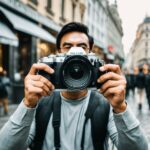 How to Make Money with Photography
How to Make Money with Photography
 Best Virtual Event Planning Side Hustles For Beginners (2024)
Best Virtual Event Planning Side Hustles For Beginners (2024)
 21 Ways to Get Paid to Travel the World in 2024
21 Ways to Get Paid to Travel the World in 2024
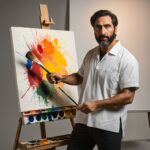 Nothing to Lose w/ Vincent Pugliese
Nothing to Lose w/ Vincent Pugliese
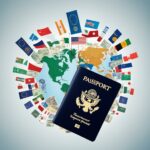 22 Best Ways to Get Paid to Travel the World (2024)
22 Best Ways to Get Paid to Travel the World (2024)
 22 Best Ways to Travel and Make Money in 2024
22 Best Ways to Travel and Make Money in 2024
 25 Best Business Ideas for Women to Start in 2024
25 Best Business Ideas for Women to Start in 2024
 Best Online Side Jobs in 2024
Best Online Side Jobs in 2024
